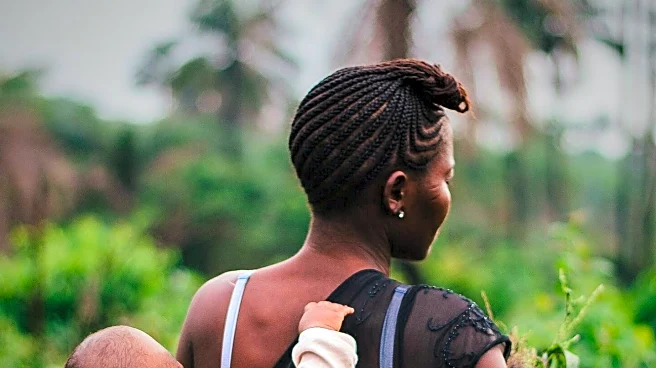What is the story about?
What's Happening?
A new study in Uganda has demonstrated that treating baby wraps with permethrin, an insecticide, can significantly reduce malaria infections in infants. The study involved 400 mothers and their children, with half receiving permethrin-treated wraps and the other half receiving water-soaked wraps. Over six months, the permethrin group saw a 65% reduction in malaria cases compared to the control group. This approach, inspired by military strategies to repel mosquitoes, offers a promising new tool in the fight against malaria, particularly in sub-Saharan Africa where the disease is prevalent.
Why It's Important?
Malaria remains a leading cause of death among children under five in sub-Saharan Africa. Traditional methods like insecticide-treated bed nets only protect children while they sleep, leaving them vulnerable during the day. The success of permethrin-treated baby wraps could provide continuous protection, reducing the incidence of malaria and its associated health risks. This innovation could be a critical addition to existing malaria prevention strategies, potentially saving thousands of lives and reducing healthcare costs in affected regions.
What's Next?
While the study's results are promising, practical implementation challenges remain, such as the need for frequent re-treatment of the wraps. However, advancements in manufacturing long-lasting permethrin-treated garments could address this issue. Researchers and public health officials are likely to explore ways to integrate this intervention into existing healthcare programs, possibly distributing the wraps during routine clinic visits. Further studies may be conducted to confirm the long-term efficacy and safety of this approach.















